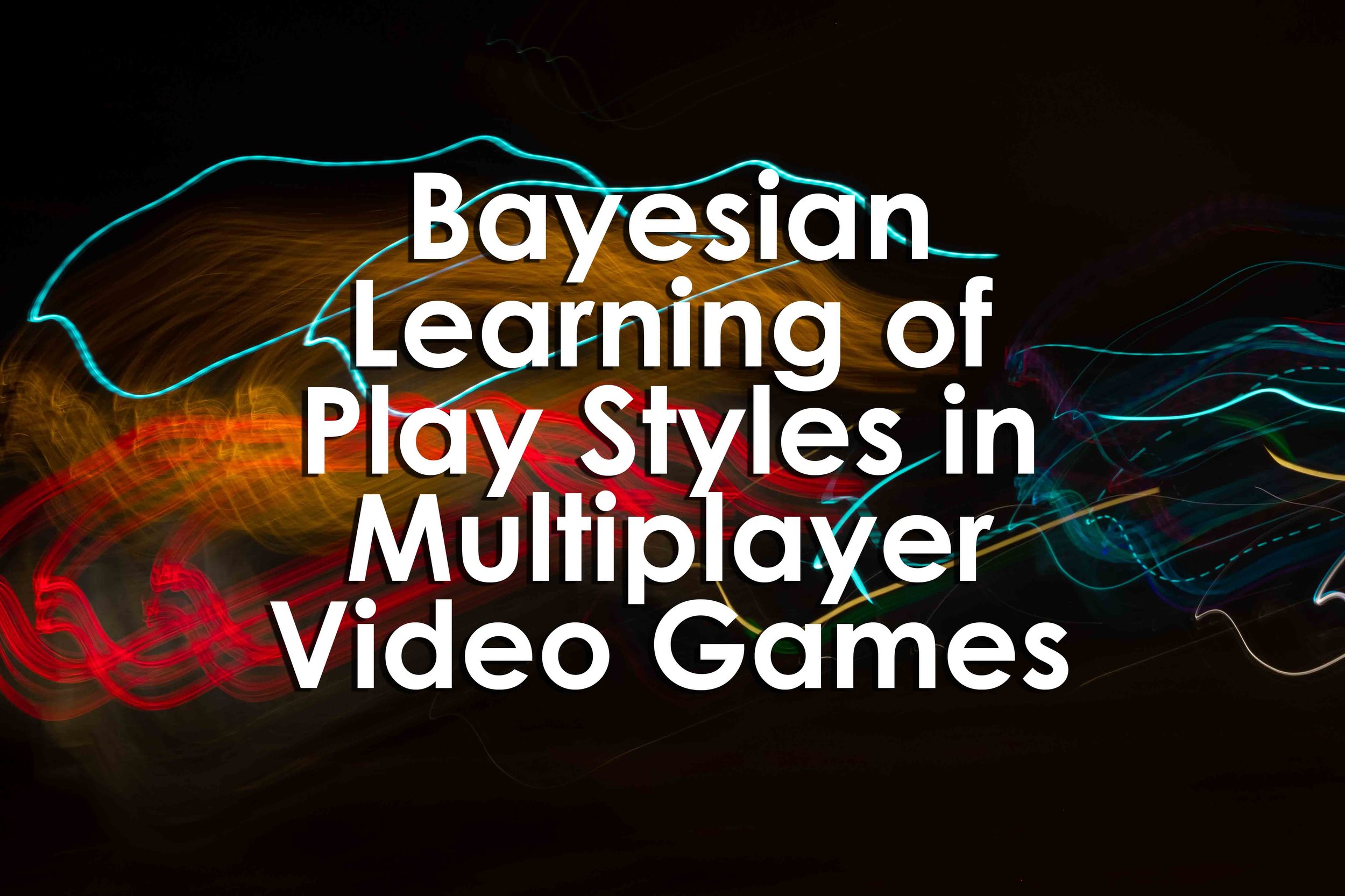Bayesian Learning of Play Styles in Multiplayer Video Games
Bayesian Learning of Play Styles in Multiplayer Video Games
Bayesian Learning of Play Styles in Multiplayer Video Games
By Aline Normoyle and Shane T. Jensen
Abstract
“The complexity of game play in online multiplayer games has generated strong interest in modeling the different play styles or strategies used by players for success. We develop a hierarchical Bayesian regression approach for the online multiplayer game Battlefield 3 where performance is modeled as a function of the roles, game type, and map taken on by that player in each of their matches. We use a Dirichlet process prior that enables the clustering of players that have similar player-specific coefficients in our regression model, which allows us to discover common play styles amongst our sample of Battlefield 3 players. This Bayesian semi-parametric clustering approach has several advantages: the number of common play styles do not need to be specified, players can move between multiple clusters, and the resulting groupings often have a straight-forward interpretations. We examine the most common play styles among Battlefield 3 players in detail and find groups of players that exhibit overall high performance, as well as groupings of players that perform particularly well in specific game types, maps and roles. We are also able to differentiate between players that are stable members of a particular play style from hybrid players that exhibit multiple play styles across their matches. Modeling this landscape of different play styles will aid game developers in developing specialized tutorials for new participants as well as improving the construction of complementary teams in their online matching queues.”
Reference
Normoyle, A., & Jensen, S. (2021, December 14). Bayesian learning of play styles in multiplayer video games. Retrieved March 24, 2022, from https://arxiv.org/abs/2112.07437
Keyword
Video game, multiplayer games, play styles, Bayesian learning, research

